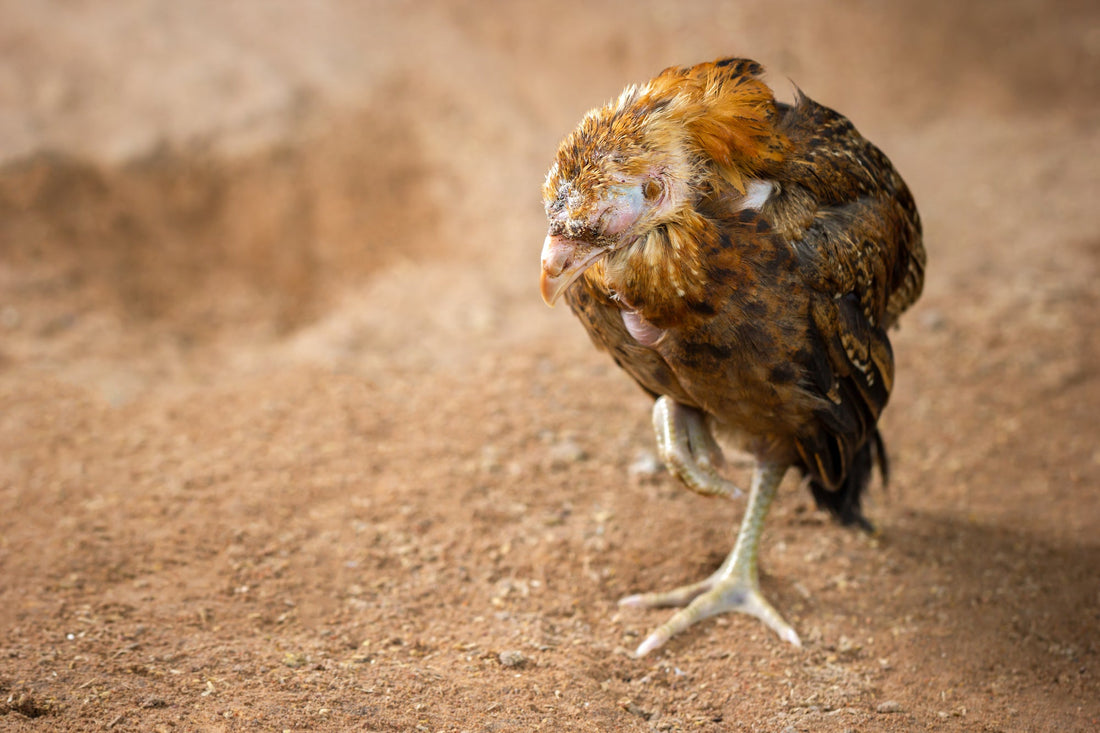Ah, the world of chicken keeping – where the clucking is merry, the eggs are plentiful, and the threat of Marek's Disease... well, let's just say it looms like an unwelcome fox in the henhouse. Marek's Disease is a serious concern for chicken enthusiasts, but fear not! With a little knowledge and some proactive steps, you can keep your feathered friends clucking happily and healthily.
The History of Marek's Disease: From Mystery to Mastery
Once Upon a Time in the Chicken World
Marek's Disease, named after the Hungarian veterinarian József Marek who first described it in 1907, is a bit like the historical villain of poultry tales. This viral disease has been lurking around chicken coops for over a century, causing distress and dismay.
The Plot Thickens
For years, Marek's Disease baffled chicken keepers and scientists alike. It wasn’t until the 1960s that significant breakthroughs occurred, leading to the development of a vaccine – a real game-changer in the poultry world.
What Exactly is Marek's Disease?
A Viral Villain
Marek's Disease is caused by a highly contagious herpesvirus. It primarily affects chickens, though it has been known to occur in quails and turkeys too. The virus has a bit of a Jekyll and Hyde personality – it can range from mild to severe, and sometimes, it’s lurking without any signs at all.
The Symptoms Saga
The signs of Marek's Disease can be as dramatic as a soap opera. They include:
Paralysis in wings and legs (cue the dramatic chicken flopping).
Weight loss (even if their appetite is as voracious as ever).
Vision impairment (imagine chickens with tiny spectacles).
Changes in feather color or texture.
Enlarged feather follicles.
Preventing Marek's Disease: A Proactive Pursuit
Vaccination: The First Line of Defense
Vaccination remains the most effective method to prevent Marek's Disease. It's a bit like giving your chicks a tiny suit of armor against this formidable foe.
Timing is Key: The vaccine is usually administered to chicks at the hatchery, often within their first 24 hours of life. It’s crucial because the vaccine needs to be given before any potential exposure to the virus.
Understanding the Vaccine: It's important to note that while the vaccine prevents the formation of tumors and extends the lives of affected birds, it doesn't make them immune to the virus itself. They can still be carriers, albeit asymptomatic ones.
Biosecurity: Building the Coop's Defenses
Creating a biosecure environment is like setting up a fortress around your flock. It involves several strategic moves:
Quarantine Newcomers: New birds should always be quarantined for at least 30 days. It's not just about being neighborly; it’s about ensuring they aren’t unwitting carriers of the virus.
Minimize Stress: Stress can weaken a chicken's immune system, making them more susceptible to diseases. Ensuring a calm, comfortable environment helps keep their defenses up.
Promote Good Nutrition: A well-balanced diet is crucial for maintaining strong immune systems in your birds. Think of it as fueling their internal disease-fighting machines.
Cleanliness: More than Just Good Hygiene
Keeping your coop and equipment clean is a critical component of Marek's Disease prevention.
Regular Cleaning: Regular cleaning and disinfecting of the coop, feeders, and waterers can prevent the spread of the virus. It’s like having a regular ‘clean-up day’ at the chicken castle.
Control of External Parasites: External parasites can carry Marek’s Disease from bird to bird. Regular treatment for mites and lice helps to reduce this risk.
Waste Management: Proper disposal of litter and manure can reduce the likelihood of the disease spreading. Think of it as taking out the trash, but with a bit more care.
Monitoring and Responding
Staying vigilant and responding quickly to any signs of illness is essential.
Regular Health Checks: Keep an eye on your birds for any signs of illness, and not just the symptoms of Marek’s Disease. A healthy flock is a happy flock.
Professional Advice: If you suspect Marek's Disease, consult a veterinarian promptly. They’re like the special forces you call in for backup.
The Importance of Vigilance
Keep an eye on your flock for any signs of illness. Early detection and action can make a big difference in the outcome.
In the epic tale of chicken keeping, Marek's Disease is a challenge that keepers have faced and overcome with science and good practices. By staying informed, vigilant, and proactive, you can ensure that your feathered cast enjoys a happy and healthy life – free from the clutches of this viral villain. So here's to healthy chickens and the ever-vigilant keepers who care for them! 🐔💪🌟

